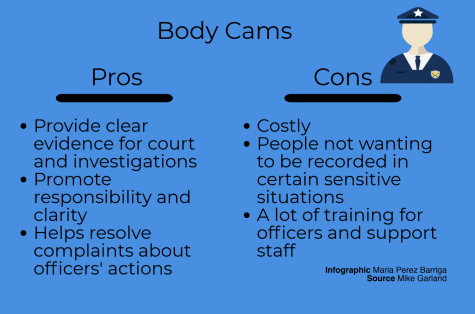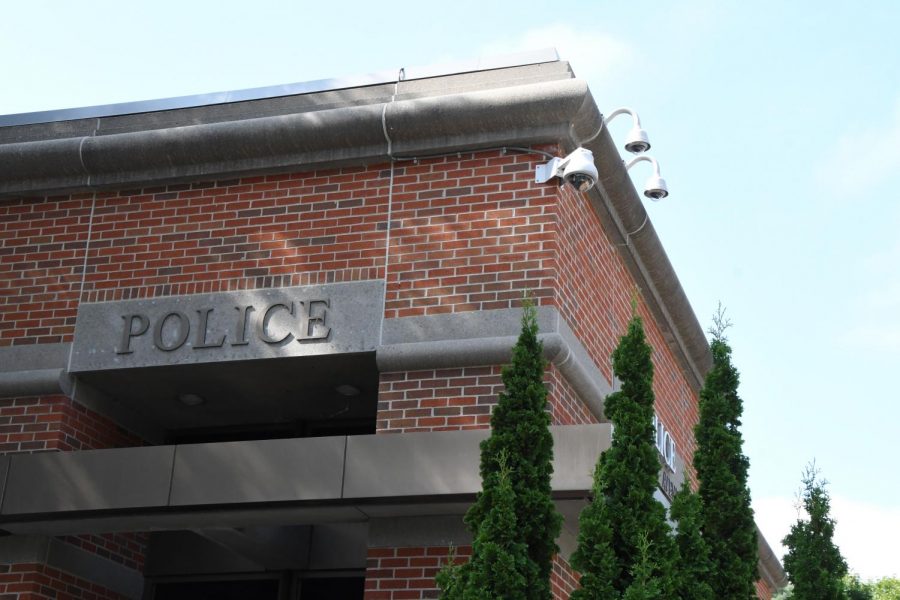Police officers to start new security policy
Body cameras are being worn and tested
The debate over body cameras ended and police officers will begin testing out which body cameras to wear.
October 1, 2018
The St. Louis Park Police Department recently ended the heated debate on wearing body cameras while on duty and are in the process of testing. Mike Garland, a lieutenant officer for St. Louis Park, said police officers have been thinking about wearing body cameras for years to further safety for the public and officers.
“Over three years ago we began exploring a program to begin using body-worn cameras to enhance officer safety, document interviews and events, preserve information for use in investigations, enhance the public trust,” Garland said. “Promote civility in police encounters, provide objective evidence to help resolve complaints against police, and to protect the civil rights of the community,” Garland said.
Garland said the police department has listened to what other people think about wearing body cameras.
“We took input from the community online and in meetings, worked with the schools, collaborated with the Multicultural Advisory Committee, Police Advisory Commission and Human Rights Commission, and were guided by our city’s elected leaders,” Garland said.
Garland said wearing body cameras could help resolve disputes in investigations later on and would improve officer behavior.
“Body cams provide clear evidence for court and investigations,” Garland said. “They promote accountability and transparency in police work and they help in resolving complaints about officer conduct.”
Junior Shalom Berhane said she thinks it is a great idea the St. Louis Park officers are going to start wearing body cameras.
“I think making police officers wearing body cams is a great idea because of all the things that had happened recently like police brutality, people getting shot and killed by officers, etc.,” Berhane said. “If another person gets shot and killed by the police for no reason, it would be easier for them to get justice unlike many of the recent trails.”
 According to Garland, body cams are not only costly but require time and effort for them to be fully functional.
According to Garland, body cams are not only costly but require time and effort for them to be fully functional.
“There is a significant monetary cost involved in adopting the technology and keeping a program operating that city governments need to be fully apprised of and prepared for,” Garland said. “They can raise privacy concerns of people that do not want to be recorded in certain sensitive situations.”
Sophomore Isela Perez Kauhaihao said body cameras are important so police officers are not wrongly blamed.
“I think it’s a good idea because it will save the officers for getting blamed for other things. That the world would see what officers do instead of getting judged by what the news tells them,” Kauhaihao said.
Garland said the policy for body cameras will be on the city’s website soon along with the state law on their use.
“It is the policy of this department to authorize and require the use of department-issued [body worn cameras] and to administer data as provided by [Minnesota] law,” Garland said.
According to Garland, body-worn cameras are in the process of testing and the goal is to have them on all officers by 2019.
“Several officers on patrol are already wearing test cameras from one of the finalist vendors right now,” Garland said. “This will go on for about a month, followed by another vendor test, and we hope to start equipping officers with our recommended equipment set sometime around the first-second quarter of 2019.”




